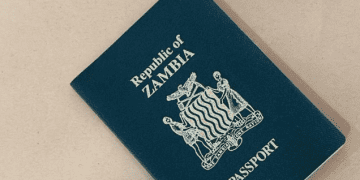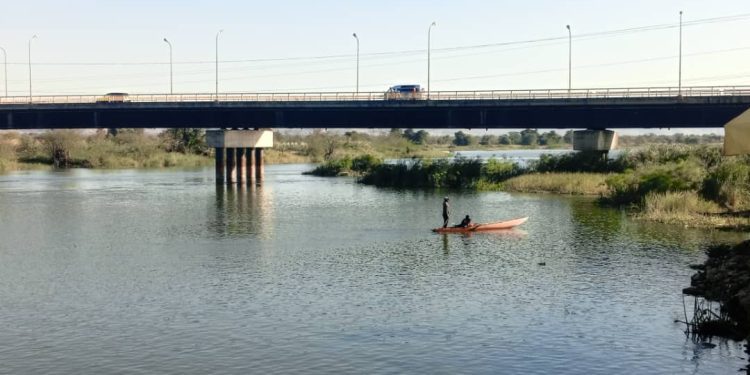06.08.2025
The Kafue River, a vital waterbody in Zambia, has been found to harbour aquatic weeds, which pose a significant threat to it’s health and riverine ecosystems, said Dr. Kelvin Kamayoyo, Technical Advisor for African Rivers. African Rivers, a nonprofit international organization promoting the health of rivers across the continent of Africa, on 5th August, 2025 conducted a field visit to the Kafue River that revealed the presence of aquatic weeds on the river and needs to be removed urgently to safeguard the health of the river.
The presence of these weeds on the Kafue River is a concern that necessitates urgent attention to safeguard the river’s health and sustain economic livelihoods of the people around the riverine ecosystems. According to Lawrence (1966), Aquatic weeds can be broadly defined as “unwanted and undesirable plants which grow and reproduce in an aquatic environment”. Aquatic weeds can have far-reaching consequences for river ecosystems including obstructing smooth movement of boats on rivers or other waterbodies.
The field visit to the Kafue River enabled the team of experts from African Rivers to conduct morphological observations of the riverine ecosystems in its natural setting by focusing on the shape of the river including its channel, banks, and bed, and understanding how these features change along its course. The findings of the field visit revealed that the Kafue River is facing numerous threats, including pollution, aquatic weeds, industrial and agricultural runoff, climate change, plastic litters, and over-extraction of water.
Life depends on rivers, and water is life, and as such rivers need protection for them to continue playing a significant role in regulating climate by contributing to the water cycle and influencing local weather patterns. Additionally, rivers play a role of nutrient cycling by transporting nutrients and sediments downstream thereby contributing to the health of downstream ecosystems and supporting fertile floodplains.
The field visit was a precursor exercise ahead of the 2025 World Rivers Day. The African Rivers organization is currently preparing together with other stakeholders in Kafue district and beyond to celebrate the World Rivers Day scheduled for 28th September, 2025. The World Rivers Day is observed by over 100 million people globally on the fourth Sunday of September each year. The World Rivers Day focuses on highlighting the value of rivers, increasing public awareness about their importance, encouraging better stewardship, and promoting the long-term health of rivers. Particularly, the World Rivers Day was initiated by Mark Angelo, a Canadian river conservationist, in 2005.
During the field visit to the Kafue River, the team of experts from African Rivers seized the opportunity to raise awareness about the upcoming 2025 World Rivers Day, assess the knowledge among general public about river health, and interact with local authorities. The team conducted a random survey whose findings revealed that in every 5 people interviewed none were aware of the upcoming World Rivers Day, and 1 in every 5 interviewed were aware about the dangers of polluting rivers. This implies that most people in Kafue district are unaware of the upcoming World Rivers Day, and only a few are aware of the dangers of polluting rivers.
The survey also revealed that some infrastructure developments near the river were channeling the river water closer to the buildings, a situation that could pose challenges when there are floods. This highlights the need for effective planning and management of riverine ecosystems to prevent such situations. ln addition, it calls to action for concerted efforts among stakeholders, including government agencies, local communities, and private sector players, to protect rivers and promote sustainable development.
Rivers like the Kafue River play a crucial role in maintaining rich biodiversity, supporting agriculture, tourism, fisheries, and regulating the climate. However, they continue to face numerous threats, including aquatic weeds, pollution, climate change, and over-extraction of water. Therefore, concerted effort among stakeholders, including government agencies, local communities, and private sector players is crucial.
lt is also essential to raise awareness about the importance of protecting rivers and enforcing prevailing laws and regulations to prevent pollution and promote sustainable development for all. Notwithstanding and not uncommon, through effective collaboration and working together, stakeholders in Zambia and the entire continent of Africa can ensure the continued benefits of rivers for both nature and society.
References:
Lawrence, J. M. (1966). Aquatic weeds: their biology and control. Journal of Aquatic Plant Management, 4(1), 12-18.
For comments and more information contact the author on email: kamayoyokm@gmail.com

















